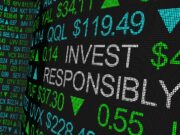Seeking out great stocks to buy is important, but many would say it’s even more essential to know which stocks to steer clear of. A losing stock can eat away at your precious long-term returns. So, determining which stocks to trim or eliminate is essential for proper portfolio maintenance.
Even the best gardens need pruning, and our team has spotted a few stocks that seem like prime candidates for selling or avoiding. Please continue reading to find out which three stocks our team is staying away from this week.
According to CME data, investors expect to see short-term interest rates jump to a range of 4.25% to 4.5% by the end of the year, pointing to an increasingly likely recession in the wings. According to The Economist, a recession formed within two years in six of the past seven rate hiking cycles where rates increased this rapidly.
One stock that has been especially vulnerable during recessions that may surprise you is aircraft maker Boeing (BA). The share price has dropped an average of 40% in the past five recessions, underperforming every other S&P 500 stock by the same metric. Shares of Boeing sank 56% in the recession that began in 2020, 43% in the one that started in 2007, and 47% in the 2001 recession.
Despite its role as a leader in commercial airplanes, demand seems to evaporate for Boeing products during recessions, along with its typically healthy backlog and demand for the stock. That is a real hazard for anyone eyeing BA after plunging 37% this year. If a recession is forming, this could be just the beginning of Boeing’s losing streak.
At their September lows, Boeing shares were approaching levels comparable to the early days of the pandemic. If the economy is indeed heading toward an extended slowdown, it could take years for Boeing shares to reach previous heights. Given all of the uncertainties combined with the lack of any significant positive catalyst for the company heading into 2023, we’re sticking to the sidelines on the stock.
Over the past two years, the dramatic shift from brick-and-mortar shopping to e-commerce has been a tremendous obstacle for investors in malls and shopping centers. The demise of cornerstones like Sears and JCPenny hastened the decline as shopping malls are now left without anchor tenants. Recent data suggests that 25% of America’s 1,000 malls will be closed in the next 3-5 years.
Leading shopping mall REIT Simon Property (SPG) is struggling to pivot amid the inevitable decline of its core asset group. The REIT has been aggressive in diversifying into outlets and foreign real estate, which may help to hedge against increasingly substantial losses from their shopping mall category. But given current inflation and the possibility of an economic slowdown, both shoppers and retailers may be in a tight spot this holiday season which will inevitably weigh heavily on SPG.
Investors choose REIT stocks because of their income-producing abilities and yields. The fact that SPG is concentrated in brick-and-mortar retail is tangential to its income feature. Anyone looking for the reliable income that real estate and mortgage investments can bring would be wise to steer clear of Simon Property for now.
While the future remains bright for renewable energy, not all solar stocks are a buy. Provider of solar engineering and construction services, iSun Inc. (ISUN), has seen operating losses skyrocket alongside revenue increases in recent years.
iSun reported second-quarter 2022 revenue of $16.5 million, representing a $12.1 million or 278% increase over the same period in 2021. Alongside top-line growth over the past year, the company has reported $15.3 million in operating losses. Operating income in the second quarter was a loss of $5.6 million compared to a loss of $2.8 million over the same period in 2021. YTD operating income was a loss of $11.3 million compared to a loss of $5.4 million during the same period in 2021.
Given the company’s already high debt position after a series of acquisitions in 2021, the additional losses could force it to raise equity to de-lever its balance sheet, which could mean further declines for iSun.
The small, unprofitable solar company’s stock is down 74% over the past 12 months, but it’s far from a bargain considering the risk factor.






